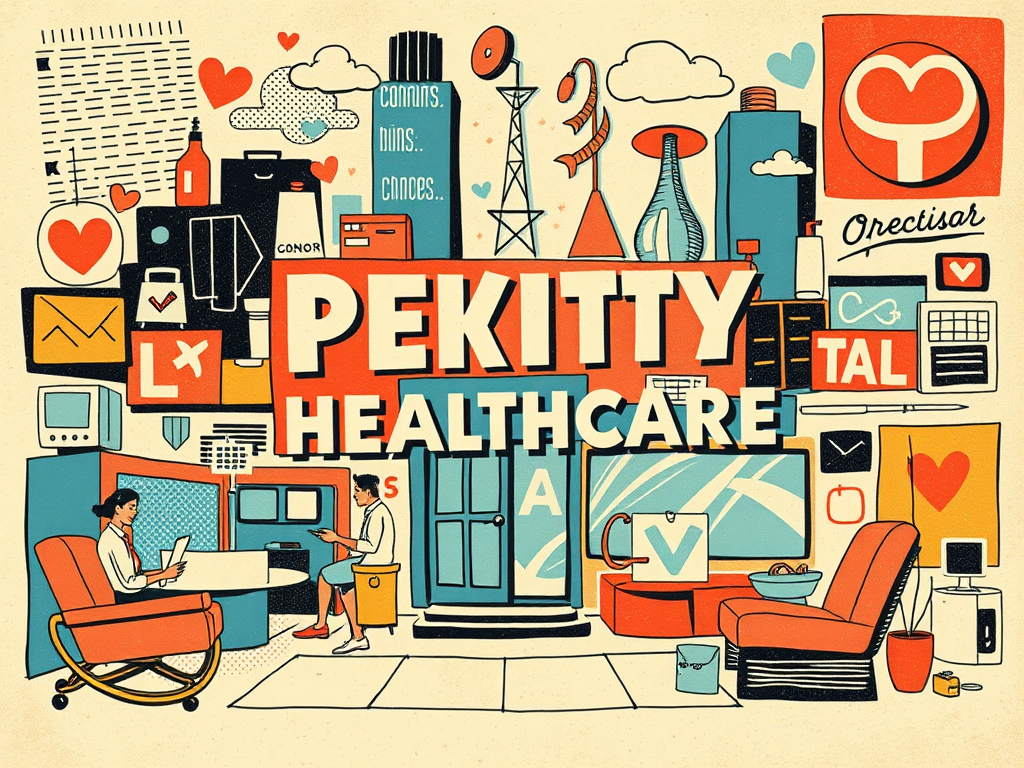
Healthcare and Pharma: Privatization and Investment Opportunities in Greek Healthcare
Reading time: 15 minutes
Table of Contents
- Introduction to Greek Healthcare System
- Current State of Greek Healthcare
- Privatization Efforts in Greek Healthcare
- Investment Opportunities in Greek Healthcare
- Pharmaceutical Industry in Greece
- Challenges and Risks
- Future Outlook
- Conclusion
- FAQs
1. Introduction to Greek Healthcare System
The Greek healthcare system has undergone significant changes in recent years, driven by economic challenges and the need for modernization. As the country continues to recover from its financial crisis, the healthcare sector presents unique opportunities for both domestic and international investors. This comprehensive analysis will explore the current state of Greek healthcare, ongoing privatization efforts, and the myriad investment opportunities available in this evolving landscape.
Greece’s healthcare system is a mix of public and private providers, with the National Health System (ESY) serving as the primary public healthcare provider. However, the system has faced numerous challenges, including underfunding, inefficiencies, and long waiting times. These issues have led to a growing push for privatization and increased investment in the sector.
2. Current State of Greek Healthcare
To understand the investment landscape, it’s crucial to examine the current state of Greek healthcare:
2.1 Public Healthcare Infrastructure
The public healthcare system in Greece, while extensive, has been strained by years of austerity measures and budget cuts. Many public hospitals face shortages of staff, equipment, and essential supplies. This has led to increasing reliance on private healthcare services, especially for specialized treatments and elective procedures.
2.2 Private Healthcare Sector
The private healthcare sector in Greece has grown significantly in recent years, with many Greeks opting for private insurance and care to avoid long waiting times and perceived quality issues in the public system. Private clinics and hospitals have invested in modern equipment and specialized services, attracting both domestic patients and medical tourists.
2.3 Healthcare Expenditure
Greece’s healthcare expenditure as a percentage of GDP has fluctuated in recent years but remains below the EU average. This indicates potential room for growth and investment in the sector. In 2020, healthcare spending accounted for approximately 8% of GDP, compared to the EU average of 9.9%.
3. Privatization Efforts in Greek Healthcare
The Greek government has been gradually moving towards privatization in the healthcare sector, driven by the need to reduce public spending and improve efficiency. Key privatization efforts include:
3.1 Hospital Management
Several public hospitals have been exploring partnerships with private management companies to improve operational efficiency and service quality. These public-private partnerships (PPPs) offer opportunities for investors to participate in the management and modernization of public healthcare facilities.
3.2 Diagnostic Centers
The government has been encouraging the establishment of private diagnostic centers to alleviate pressure on public hospitals and reduce waiting times for tests and procedures. This has created opportunities for investors to enter the market with state-of-the-art diagnostic equipment and services.
3.3 Specialized Care Units
There is a growing trend towards the privatization of specialized care units, such as oncology centers and rehabilitation facilities. These specialized units often require significant capital investment and expertise, making them attractive opportunities for healthcare investors.
4. Investment Opportunities in Greek Healthcare
The ongoing transformation of the Greek healthcare system presents numerous investment opportunities:
4.1 Private Hospitals and Clinics
With increasing demand for private healthcare services, there are opportunities to invest in existing private hospitals or establish new facilities. Investors can focus on underserved regions or specialized medical services to capture market share.
4.2 Medical Technology and Equipment
Many Greek healthcare facilities require modernization of their medical equipment. Investors can capitalize on this need by supplying cutting-edge medical technology, imaging equipment, and diagnostic tools.
4.3 Digital Health Solutions
The Greek healthcare system is increasingly adopting digital health solutions, including telemedicine, electronic health records, and health information systems. This presents opportunities for tech-savvy investors to develop and implement innovative digital health solutions.
4.4 Pharmaceutical Manufacturing
Greece’s pharmaceutical industry has potential for growth, particularly in generic drug production and contract manufacturing. Investors can explore opportunities in establishing or acquiring pharmaceutical manufacturing facilities.
4.5 Medical Tourism
Greece’s favorable climate, rich cultural heritage, and relatively low costs make it an attractive destination for medical tourism. Investors can develop specialized clinics and wellness centers catering to international patients.
5. Pharmaceutical Industry in Greece
The pharmaceutical industry plays a crucial role in the Greek healthcare sector and offers significant investment potential:
5.1 Market Overview
Greece’s pharmaceutical market is valued at approximately €4 billion annually, with domestic production accounting for about 25% of the market. The industry has shown resilience despite economic challenges and continues to attract both domestic and international investment.
5.2 Generic Drugs
The Greek government has been promoting the use of generic drugs to reduce healthcare costs. This policy shift has created opportunities for manufacturers of generic pharmaceuticals to expand their presence in the Greek market.
5.3 Research and Development
While R&D investment in the Greek pharmaceutical sector has been limited, there is potential for growth in this area. Collaborations between pharmaceutical companies and Greek research institutions could lead to innovative drug development opportunities.
5.4 Export Potential
Greek pharmaceutical companies have been increasingly focusing on exports, particularly to other European and Middle Eastern markets. This export-oriented approach presents opportunities for investors to participate in the global pharmaceutical supply chain.
6. Challenges and Risks
While the Greek healthcare sector offers numerous investment opportunities, it’s important to consider the potential challenges and risks:
6.1 Regulatory Environment
The healthcare sector in Greece is heavily regulated, and navigating the complex regulatory landscape can be challenging for investors. Changes in healthcare policies and regulations can impact investment returns.
6.2 Economic Uncertainty
Although Greece has made significant progress in economic recovery, lingering economic uncertainties could affect healthcare spending and investment returns.
6.3 Competition
The growing interest in Greek healthcare investments may lead to increased competition, potentially affecting profit margins and market share.
6.4 Public Perception
There may be public resistance to increased privatization in healthcare, which could lead to political and social challenges for investors.
7. Future Outlook
The future of Greek healthcare looks promising for investors, with several factors contributing to a positive outlook:
7.1 Aging Population
Greece has one of the fastest-aging populations in Europe, which will drive increased demand for healthcare services and create opportunities for specialized care facilities and services.
7.2 Technological Advancements
The adoption of new healthcare technologies, including AI-driven diagnostics and personalized medicine, will create opportunities for tech-focused healthcare investments.
7.3 EU Support
Ongoing support from the European Union for Greece’s economic recovery is likely to include funding for healthcare infrastructure improvements, creating additional investment opportunities.
7.4 Healthcare Reform
Continued healthcare reform efforts by the Greek government are expected to create a more favorable environment for private sector participation and investment in healthcare.
8. Conclusion
The Greek healthcare sector presents a unique combination of challenges and opportunities for investors. As the country continues to recover from its economic crisis and modernize its healthcare system, there is significant potential for growth and innovation in both the public and private healthcare sectors.
Investors looking to capitalize on these opportunities should carefully consider the regulatory landscape, economic factors, and specific market needs. By focusing on areas such as private hospital management, medical technology, digital health solutions, and pharmaceutical manufacturing, investors can play a crucial role in shaping the future of Greek healthcare while potentially realizing significant returns on their investments.
As with any investment, thorough due diligence and a deep understanding of the local market dynamics are essential for success. The transformation of Greek healthcare is an ongoing process, and those who position themselves strategically now may reap substantial benefits in the years to come.
For those interested in diversifying their investment portfolio beyond healthcare, consider exploring opportunities in Greek real estate. property for sale in greece offers another avenue for potentially lucrative investments in this dynamic Mediterranean economy.
9. FAQs
-
Q: What are the main drivers for healthcare privatization in Greece?
A: The main drivers include the need to reduce public spending, improve healthcare efficiency, and modernize facilities and services. The financial crisis and subsequent austerity measures have also accelerated the push towards privatization.
-
Q: How does the Greek pharmaceutical market compare to other European countries?
A: The Greek pharmaceutical market is smaller compared to major European economies but has shown resilience and growth potential. It is particularly strong in generic drug production and has been expanding its export capabilities.
-
Q: What are the key regulatory considerations for healthcare investors in Greece?
A: Investors should be aware of regulations governing healthcare provision, drug pricing, and reimbursement policies. It’s also important to understand the licensing requirements for healthcare facilities and the rules surrounding public-private partnerships in healthcare.
-
Q: How is technology impacting the Greek healthcare sector?
A: Technology is playing an increasingly important role in Greek healthcare, with growing adoption of telemedicine, electronic health records, and AI-driven diagnostics. This creates opportunities for investors in health tech and digital health solutions.
-
Q: What are the prospects for medical tourism in Greece?
A: Greece has significant potential as a medical tourism destination due to its pleasant climate, high-quality private healthcare facilities, and relatively lower costs compared to other European countries. Investments in specialized clinics and wellness centers catering to international patients could be particularly promising.

Article reviewed by Marco Rossi, Private Equity Portfolio Director | Transforming Distressed Assets into High-Performance Investments, on March 14, 2025





